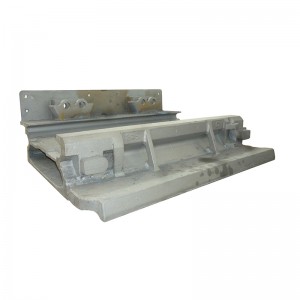- Afrikaans
- Albanian
- Amharic
- Arabic
- Armenian
- Azerbaijani
- Basque
- Belarusian
- Bengali
- Bosnian
- Bulgarian
- Catalan
- Cebuano
- China
- China (Taiwan)
- Corsican
- Croatian
- Czech
- Danish
- Dutch
- English
- Esperanto
- Estonian
- Finnish
- French
- Frisian
- Galician
- Georgian
- German
- Greek
- Gujarati
- Haitian Creole
- hausa
- hawaiian
- Hebrew
- Hindi
- Miao
- Hungarian
- Icelandic
- igbo
- Indonesian
- irish
- Italian
- Japanese
- Javanese
- Kannada
- kazakh
- Khmer
- Rwandese
- Korean
- Kurdish
- Kyrgyz
- Lao
- Latin
- Latvian
- Lithuanian
- Luxembourgish
- Macedonian
- Malgashi
- Malay
- Malayalam
- Maltese
- Maori
- Marathi
- Mongolian
- Myanmar
- Nepali
- Norwegian
- Norwegian
- Occitan
- Pashto
- Persian
- Polish
- Portuguese
- Punjabi
- Romanian
- Russian
- Samoan
- Scottish Gaelic
- Serbian
- Sesotho
- Shona
- Sindhi
- Sinhala
- Slovak
- Slovenian
- Somali
- Spanish
- Sundanese
- Swahili
- Swedish
- Tagalog
- Tajik
- Tamil
- Tatar
- Telugu
- Thai
- Turkish
- Turkmen
- Ukrainian
- Urdu
- Uighur
- Uzbek
- Vietnamese
- Welsh
- Bantu
- Yiddish
- Yoruba
- Zulu
Oct . 17, 2024 05:13 Back to list
Understanding the Efficiency Levels of Older Gas Boilers in Today's Heating Systems
The Efficiency of Old Gas Boilers A Comparative Analysis
When it comes to home heating, gas boilers have long been a popular choice for many households around the globe. However, as advancements in technology continue to evolve, the efficiency of these heating systems has come under scrutiny, particularly concerning older models. In this article, we will explore the efficiency of old gas boilers, comparing them to modern alternatives and discussing potential implications for homeowners.
Understanding Boiler Efficiency
Boiler efficiency is typically measured in terms of Annual Fuel Utilization Efficiency (AFUE), which represents the percentage of fuel that is converted into usable heat over a year. Older gas boilers, commonly found in homes built before the 1990s, generally operate with an AFUE of around 60% to 70%. This means that a significant portion of the energy consumed is wasted, either through flue gases or poor insulation within the system itself.
On the other hand, modern gas boilers boast impressive efficiency ratings, with many achieving AFUE values of 90% or higher. This leap in efficiency can be attributed to enhanced heat exchangers, improved insulation, and advanced technology such as condensing capabilities that recuperate excess heat from the flue gases.
The Impact of Age on Efficiency
The age of a gas boiler significantly affects its performance. As boilers age, their components can wear down, leading to decreased efficiency and increased energy consumption. Components such as burners, pumps, and fans may not function optimally, causing the boiler to work harder to produce the same amount of heat. Moreover, older systems often lack the sophisticated controls found in newer models, which help to regulate temperature and optimize fuel consumption.
In addition to mechanical wear and tear, older boilers are often less adaptable to home energy management systems, which can further inhibit their efficiency. Modern homes benefit from smart thermostats and zoning systems that allow for precise temperature control, minimizing energy waste. These features were not available in older models, making them less efficient in today's energy-conscious market.
efficiency of old gas boilers

Considerations for Homeowners
For homeowners relying on older gas boilers, several considerations should be taken into account. First and foremost is the financial aspect. While the initial investment to upgrade to a newer, more efficient boiler can be significant, the long-term savings on energy bills can offset this cost. In fact, government incentives and rebates are often available for homeowners who choose to upgrade their heating systems, making it a financially attractive option.
Moreover, energy efficiency has become a critical component of reducing carbon footprints. With increasing awareness of climate change and environmental issues, replacing an old gas boiler with a modern, high-efficiency model is not only beneficial for the wallet but also for the planet. New boilers emit fewer greenhouse gases, contributing to a more sustainable future.
The Future of Heating
As technology continues to advance, the future of heating systems is unfolding rapidly. Innovative solutions, such as hybrid systems that combine gas and renewable energy sources, are becoming more prevalent, offering even greater efficiency and lower emissions. Homeowners should consider these options when contemplating upgrades to their heating systems.
Additionally, the industry is moving towards stricter regulations regarding energy efficiency standards for heating systems. The transition to low-carbon technologies will likely dictate the types of options available in the coming years, incentivizing further shifts away from traditional fossil fuel-based systems.
Conclusion
In conclusion, the efficiency of old gas boilers presents both challenges and opportunities for homeowners. While these older systems may have served their purpose for many years, the benefits of upgrading to a modern, high-efficiency boiler are numerous. From cost savings to environmental impact, the case for replacing an old gas boiler is compelling. As technology continues to evolve and sustainability becomes an ever-pressing issue, investing in an efficient heating system is more relevant now than ever. Homeowners should weigh their options carefully and consider the long-term advantages of upgrading their heating solutions for a more efficient and sustainable future.
-
8mm Thin-Walled Cast Steel Manhole Cover Pallet Bottom Ring | Durable
NewsAug.04,2025
-
Premium Cast Iron Water Main Pipe: Durable, Corrosion-Resistant
NewsAug.03,2025
-
Durable Cast Iron Water Mains | AI-Optimized Systems
NewsAug.02,2025
-
High-Efficiency Propane Boiler for Baseboard Heat | Save Energy
NewsAug.01,2025
-
Premium Source Suppliers for Various Gray Iron Castings
NewsJul.31,2025
-
Durable Cast Iron Water Main Pipes | Long-Lasting
NewsJul.31,2025


